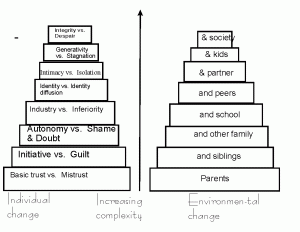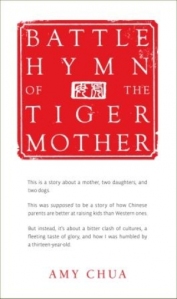
Noteworthy Wednesday!
This is my most read post in 2011…since “Tiger Mom” is now published in paperback and it is the one year anniversary of the commotion that it set off I am reposting this for you perusal.
Enjoy.
Why Caucasian fathers are superior.
“So it should come as no surprise that I am better at parenting than most humans (and all animals, except bison and unicorns). The reason? I’m a Caucasian male.
The Caucasian culture does not accept mediocrity. You name it, we excel at it. Whether it’s playing hockey, or watching hockey, or dancing (the polka), or finishing last in 100-metre races, or suppressing the civil rights of minorities, Caucasian males do it best. We also raise the brightest children.”
Seriously, this is such an amusing piece that responds to the “Tiger Mom” uproar. I thought we had read just about everything but apparently not so.
Given all the commotion that Tiger Mom has generated, I think that it is time to consider some balance. Parenting is something that is too important to actually laugh about.
It seems there are as many beliefs about the right way to parent as there are parents. It is my belief that anything taken to extremes is never really a good thing. There are exceptions to almost any “rule”. To be excessively rigid in your parenting style could pass this rigidity on to your child or create the opposite stance on your child’s part. Neither of these responses is what I personally would want.
There are many aspects of attachment parenting that I like and I probably was an attached parent and am an attached grandparent although I did not “co-sleep” nor did I breast feed.
My personal parenting guidelines came from Erik Erikson’s stages of development. I tried to parent so that my children successfully completed Erikson’s stages of development.

I also tried to model behavior for my children. They experienced how important it was for both their grandmothers to die having completed their final stage of life at age 89. They both died with integrity and dignity.
Parenting never really ends.
For me, it is about teaching your children how to have love and empathy and be able to develop their own skills to live each stage of life.
With that said please read this “caucasian father’s” editorial reaction to “Tiger Mom” and laugh if you like…it is pretty humorous!








